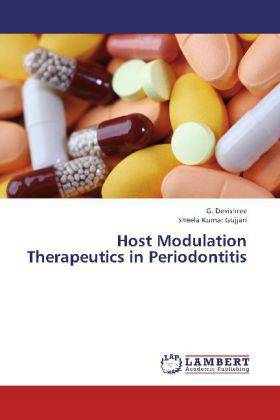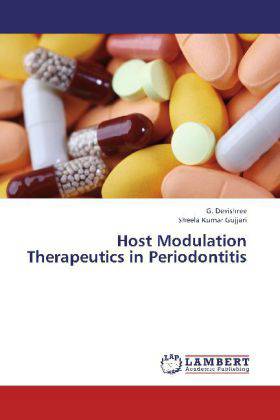
Bedankt voor het vertrouwen het afgelopen jaar! Om jou te bedanken bieden we GRATIS verzending (in België) aan op alles gedurende de hele maand januari.
- Afhalen na 1 uur in een winkel met voorraad
- In januari gratis thuislevering in België
- Ruim aanbod met 7 miljoen producten
Bedankt voor het vertrouwen het afgelopen jaar! Om jou te bedanken bieden we GRATIS verzending (in België) aan op alles gedurende de hele maand januari.
- Afhalen na 1 uur in een winkel met voorraad
- In januari gratis thuislevering in België
- Ruim aanbod met 7 miljoen producten
Zoeken
€ 65,45
+ 130 punten
Omschrijving
Periodontitis is an infection-driven chronic inflammatory disease that affects the integrity of tooth-supporting tissues. Over the last two decades it has become more evident that although oral microorganisms are essential agents of periodontal pathogenesis, interpatient variability in the host response is a major determinant of the expression of periodontal disease extent and severity. The shift in paradigms to a concentration on the host response has led to the development of host-modulatory therapies to improve therapeutic outcomes, slow the progression of disease, allow for more predictable management of patients, and possibly even work as preventive agents against the development of periodontitis. Thus, Host modulatory agents, when used adjunctively, may enhance clinical therapeutic responses and make these responses more predictable in the susceptible host.
Specificaties
Betrokkenen
- Auteur(s):
- Uitgeverij:
Inhoud
- Aantal bladzijden:
- 104
- Taal:
- Engels
Eigenschappen
- Productcode (EAN):
- 9783659331862
- Verschijningsdatum:
- 10/02/2013
- Uitvoering:
- Paperback
- Afmetingen:
- 150 mm x 220 mm
- Gewicht:
- 163 g

Alleen bij Standaard Boekhandel
+ 130 punten op je klantenkaart van Standaard Boekhandel
Beoordelingen
We publiceren alleen reviews die voldoen aan de voorwaarden voor reviews. Bekijk onze voorwaarden voor reviews.









